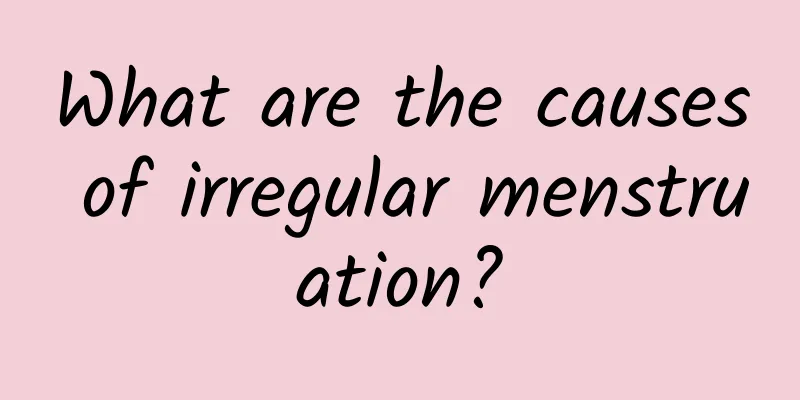Is lemon water a magic weapon for whitening? Or is it the catalyst for a black swan?

|
"A white complexion hides three uglinesses!" Many women use various folk remedies in an attempt to defeat the "dark forces" and become "white swans". Among them, drinking lemon water and applying lemon slices on the face are both widely circulated super-powerful whitening magic tools, which seem to be very popular among the public and are willing to try. Is this whitening method correct? Let the nutritionist explain in detail. If you want to keep your skin fair, it is mainly through the intake of more antioxidant foods. Nutritionist You Weiming said that all fruits are rich in vitamins and phytochemicals. Eating them can promote the antioxidant effect in the body. They not only inhibit the formation of melanin, but also lighten dark pigments. Therefore, consuming 2 to 4 servings of fruit a day has an anti-aging effect. Drinking lemon water contains less vitamins and phytochemicals As for lemon water, it is just lemon slices put into water, so the vitamins and phytochemicals obtained from lemon water are quite few. Applying lemon slices on the face not only does not get any nutrients into the body, but the lemon juice remaining in the gaps of the skin may have the opposite effect. Conversely, some people believe that lemon is a photosensitive food and eating too much will make the skin darker, so they dare not eat lemons. Photosensitive food refers to food that contains photosensitive substances (furocoumarin). When the photosensitive substances remain on the skin and are exposed to ultraviolet rays for a long time, they will cause a photoallergic reaction, making the skin more prone to redness, swelling, inflammation and melanin deposition. It usually takes several weeks to gradually recover. If you are exposed to ultraviolet rays again during the recovery period, your skin will become darker. Eat light-sensitive foods and avoid prolonged exposure to ultraviolet rays Nutritionist You Weiming pointed out that darkening of the skin usually occurs when photosensitive substances remain in the skin and come into contact with ultraviolet rays. There is currently no literature that clearly states that eating photosensitive foods, such as lemon, lime, pomelo, bergamot, bitter orange, grapefruit, fig, agarwood, fig, celery, coriander, carrot, lemon, white radish, coriander, basil, celery, etc., will cause the adverse effect of accelerating the production of melanin in the skin and causing it to darken, so people can actually eat them with confidence. If you are really worried about the effects of photosensitive foods, just avoid prolonged exposure to ultraviolet rays after eating them. What should ordinary people pay attention to when drinking lemon water? The pH value of lemons tested with a pH meter is about 2.4, which is a strong acid. Therefore, it is not recommended for people to eat lemons on an empty stomach or drink large amounts of lemon water, especially for those with stomach diseases such as gastric ulcers, gastroesophageal reflux, and excessive stomach acid. In addition, if you are taking medication (antihypertensive drugs), you should not take them with lemon water to avoid affecting the efficacy of the medication. People on dialysis or chronic kidney disease are also not suitable to drink lemon water all day to avoid excessive potassium ion intake. Whiten your skin by consuming more balanced vegetables and fruits If you want to whiten your skin, you must avoid damage caused by excessive exposure to ultraviolet rays, and at the same time reduce the body's production of excessive melanin. Nutritionist You Weiming recommends that vegetables and fruits contain a large amount of antioxidant ingredients, which can eliminate excessive free radicals and melanin in the body. Therefore, if you want to whiten your skin, it is best to consume 3 to 5 plates of vegetables and 2 to 4 servings of fruits every day (each plate of vegetables is about 100g, and each serving of fruit is about the size of a girl's fist). In addition, a better way to block ultraviolet rays is to avoid walking or working under the scorching sun, and use clothes and parasols to protect your body from sun exposure. If you can use sunscreen with a sun protection factor, you can further reduce the damage of ultraviolet rays to your skin. Avoid sun exposure when using products with whitening ingredients There are currently 13 whitening ingredients approved by the Ministry of Health and Welfare, including: tranexamic acid, ellagic acid, arbutin, etc. The main function of whitening ingredients is to inhibit the formation of melanin and prevent the occurrence of pigmentation spots. In addition, the Food and Drug Administration reminds the public that when using whitening ingredients, they should avoid using them on inflamed areas. If you have experienced allergic reactions, you should confirm the allergic ingredients or do a skin allergy test first to confirm that you have no allergic reaction to the product before using it. In addition to using whitening cosmetics, consumers still need to pay attention to sun protection and avoid exposure to the scorching sun, so that the whitening work will not be in vain. |
>>: "Pomelo" arrives at Mid-Autumn Festival! Don't touch grapefruit when taking these medicines!
Recommend
Can skipping improve leucorrhea?
Rope skipping can improve abnormal leucorrhea, bu...
No cause found for vulvar pruritus
The inability to find the cause of vulvar pruritu...
What is the impact of left ovarian cyst on women? Will it affect fertility?
A woman's greatest pride is to be a mother, b...
Can women soak their feet during menstruation? Remember the 5 major taboos during menstruation
Women's menstrual period is a special physiol...
How much do you know about common pelvic inflammatory disease examination methods?
Pelvic inflammatory disease is a serious health d...
Experts introduce important precautions for medical abortion
Compared with other abortion methods, medical abo...
What prescriptions does traditional Chinese medicine use to treat menopause?
A widely used method for menopausal syndrome is h...
What are the causes and symptoms of ovarian cysts?
What are the causes of ovarian cysts? What are th...
A brief analysis of the causes of cervicitis
Cervicitis is a common disease among women of chi...
Detailed explanation of some common symptoms of cervicitis
The most common symptom among female friends in s...
What medicine is good for pelvic inflammatory disease
Pelvic inflammatory disease is a pelvic inflammat...
What happens if you drink alcohol 12 days after abortion?
Abortion usually refers to artificial abortion. I...
How to care for vulvar itching
Vulvar itching is a problem that troubles many wo...
Precautions for Trichomonas vaginitis
Trichomonas vaginitis often recurs after menstrua...
During the Mid-Autumn Festival barbecue, how to prevent fat accumulation and obesity? Learn "these 3 tricks" to achieve your ideal body shape
The Mid-Autumn Festival is approaching, and the f...









